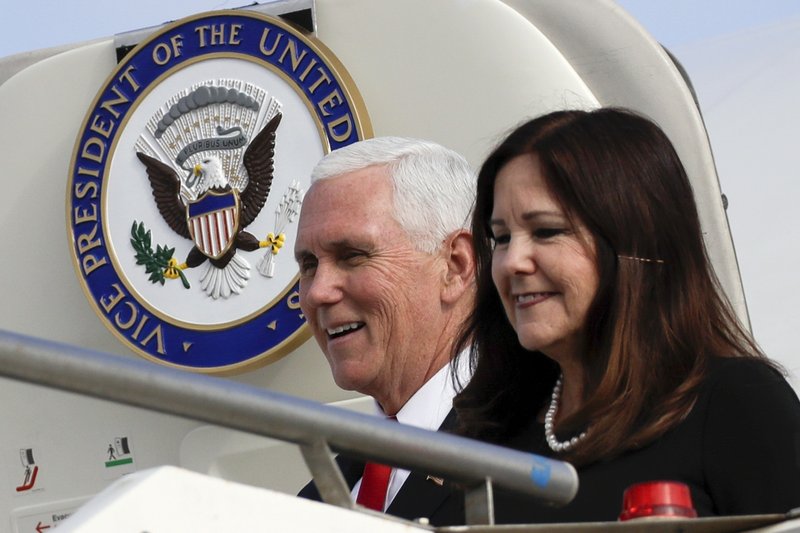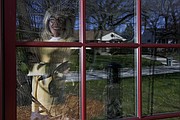WASHINGTON -- Karen Pence says it's OK to not be OK during the coronavirus pandemic.
While Vice President Mike Pence runs the White House coronavirus task force, his wife is leading a parallel effort to help people deal with anxiety and other emotions brought on by the pandemic.
Two months into the crisis, millions of Americans are struggling to cope with the fallout, whether it's losing loved ones, losing a job or staying at home more than they ever have.
"This is something we're all going through together, and it's not like anything we've ever gone through before," Karen Pence told The Associated Press in a recent interview.
She is lead ambassador for the PREVENTS task force, an acronym for the President's Roadmap to Empower Veterans and End the National Tragedy of Suicide. It was created in 2019 to focus on veterans' suicides, but recently launched a social media campaign called "More Than Ever Before" to help reach Americans before they get to "the end of their rope," she said.
[CORONAVIRUS: Click here for our complete coverage » arkansasonline.com/coronavirus]
"We want them to know there's help out there, and there are things that we can do to prevent some of the effects that this is having on our mental health as a nation," Pence said. She joined the PREVENTS effort early this year, before the extent of the coronavirus threat in the U.S. became clear.
Pence says there are four basic things people can do to help them cope with the situation, beginning with a daily "check in" with themselves to gauge how they're feeling and then reach out to a friend or other individual if they need someone to hear them out.
They should also figure out what puts them at ease, whether it's reading, cooking or another activity, and schedule time for it. Pence, a watercolor artist, said she's been working on a painting of a friend's house and is designing her family's Christmas card.
People should also talk about their struggles and successes and include children in those conversations, she said. And if they're concerned about themselves or someone else, they should feel comfortable calling the national suicide prevention lifeline at 1-800-273-TALK.
"It's OK to not be OK," said Pence. She posts tips and information about available resources on her Twitter page.
Among those grappling with the new dynamics is Jody Garrison, who works from her Milwaukee home, turning old books into journals and selling them online.
It's the rare trip to the grocery store that triggers anxiety.
"You worry about, 'Am I going to catch something from touching something?' so I truly don't go out in public much at all," the 68-year-old said by telephone.
"I think what's kept my sanity is that I've tried really hard to stay focused on things that kept me happy in the past to sustain the thought of being alone," she said. "I'm trying to stay focused on the positive, and when you do that, it doesn't seem quite so bad."
Experts say rates of suicide and substance abuse were rising before the pandemic, but it's too soon to know how much they may have increased during the outbreak.
Suicide prevention and mental health advocates said they welcome the PREVENTS effort but would like to see more spending on a more coordinated effort to reduce deaths caused by despair.
"You don't have to be a mental health expert to know we're in deep trouble," said former Rep. Patrick Kennedy, D-R.I., co-chair of a new public-private effort to respond to mental health and suicide prevention needs.
Suicide is the 10th leading cause of death in the U.S., with 48,000 deaths reported in 2018, said Jerry Reed, who serves with Kennedy on the executive committee of the National Action Alliance for Suicide Prevention.
Information for this article was contributed by Tammy Webber and Hannah Fingerhut of The Associated Press.
A Section on 05/15/2020

